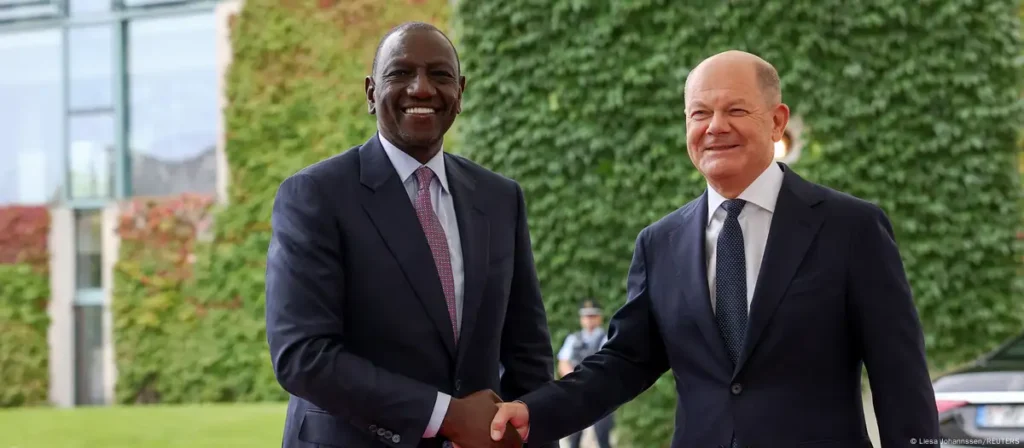German Chancellor Olaf Scholz and Kenyan President William Ruto agreed steps to allow more skilled east African workers move to Europe, but also to facilitate quicker repatriation of migrants refused the right to stay.
Agency Report

Berlin – Germany and Kenya signed an agreement on Friday in Berlin seeking to allow more skilled workers from the east African country to live and work in the biggest EU economy.
The labor and migration deal will also help to facilitate the repatriation of Kenyans who do not have the right to stay in Germany.
With an aging and shrinking workforce, experts say Germany country needs about 400,000 skilled immigrants each year.
German Chancellor Olaf Scholz, in talks with Kenyan President William Ruto, said the impact of the labor shortage “will be with us for years and decades to come.”
“This agreement can help us to compensate for a shortage of skilled workers,” he said. “On the other side of the coin, the agreement provides for effective return procedures for those who have come to us from Kenya but do not have or cannot acquire the right to stay here. They can now return home more easily and quickly.”
Despite Scholz’s government trying to be seen to take a tough stance on illegal or unauthorized migration of late, following a recent knife attack in Solingen and successes for the anti-migrant Alternative for Germany (AfD) party in two eastern state elections, Scholz praised those coming to country using authorized channels.
“The basis of our prosperity is being open to the world,” Scholz said.
Meanwhile, Ruto hailed what he billed as a comprehensive migration and labor mobility partnership agreement, which he said would harness the “human capital in Kenya, where we have a big youth bulge.”
“We can combine the innovation, creativity, energy, talent, knowledge of our young people with German investment, technology and resources and provide for a win-win outcome,” Ruto said. He also voiced support for the part of the deal involving more rapid returns, saying that illegal migration poses “a problem both to us and to Germany.”
